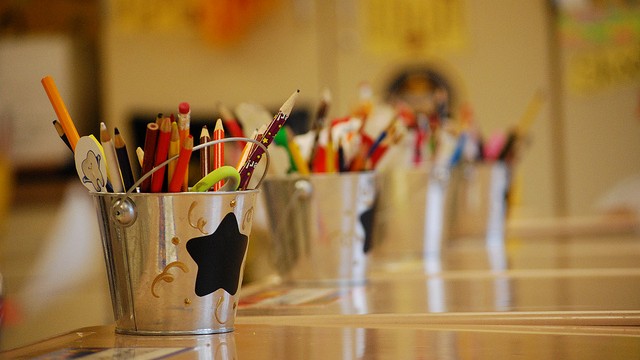Have you ever noticed how after a parent-teacher interview your students behave like it’s the first day of school? After that interview, students approach class identically to how adults approach January 2nd. It is like parent-teacher interviews are school’s version of a New Year’s resolution for education in a bottle. Unfortunately, this resolved attitude only lasts for a few days, or a few weeks if you’re lucky. And then it is back to routine; students fall back into their “bad” habits while teachers earnestly try to remind them about that golden time when they appeared to be taking a step in the right direction.
This scenario plays out for me every single school year. Before I talk with parents, I make it explicit to them that I would like their child to be present during the meeting. In my experience, when the child isn’t there, the whole broken telephone slash “Mr. Morris said this…” doesn’t quite have the same impact as a parole-board style hearing where the convict must be present to account for his transgressions. Parents want to hear about the good stuff, but it seems like they mostly want to hear about the bad shit; the things their child can improve on. Teachers are all too ready to elaborate on how a child can go from good to perfect. Thus, the parent-teacher interview is a great time for simply reiterating to a child that he or she needs to simply work harder. When the child is there, that message is driven home, and everyone, including said student, benefits from this exchange.
But these parent-teacher interviews only happen once or twice a year. Meeting a parent two times over a period that lasts ten months is like skipping a pebble down a pond. You may get a few positive bounces above water, but eventually the rock succumbs to gravity.
The solution to this challenge, then, seems laid out plain in front of us. Keep that rock bouncing above water. More parent-teacher interviews.
Education is meant to serve students. Students get served when both parents and teachers are in communication and work together towards the same means. Notes in the agenda sent home to parents and phone calls made make an impact. But that face time with parent, teacher and über conscious student, all happening in the classroom where the student frequents day in and day out, go the extra mile. Parent-teacher interviews are a timetabling and burdensome challenge for all involved, but if we had a few more, that rock might continue to skip across the whole damn pond.
After the first month of school is a ripe time for teachers to meet with parents. Teachers, at that point, have a “feel” for their students’ attitudes, abilities, and capacity to excel academically and by other means. More importantly, an interview before that first report card establishes a culture of parent-teacher kinship and dual responsibility for a child’s welfare. An interview before a first report card fosters that school is meant to provide growth and progression, and not a cold verdict and sentencing. After the first report card is another opportune time to foster the skipping of the rock. The child, who is the focal point of education, has had one interview where strengths and areas for improvement were discussed and subsequently has been assessed on her “cascade to excellence” or lack of progression. And finally, at least two more interviews through the mid-point and second half of the school year. With the parent-teacher interaction maintaining a consistent connection, students would be hard-pressed to fall back into habits that are detrimental to their success.
A lot of talk around education these days pertains to parent engagement and how to get parents on par with what is happening inside the classrooms of their children. In order to bridge that gap between the teacher and the parent, we must forge pathways that foster student accountability. Perhaps subtracting a few days of “instructional time” to increase parent-teacher interaction is the path to ensuring that both parents and teachers are on the same page in ensuring that a child, who is the focal point of education, is progressing, accountable and aware that school and home are intricately connected and a part of their success as future productive citizens in society.
[share title=”Share this Post” facebook=”true” twitter=”true” google_plus=”true”]

